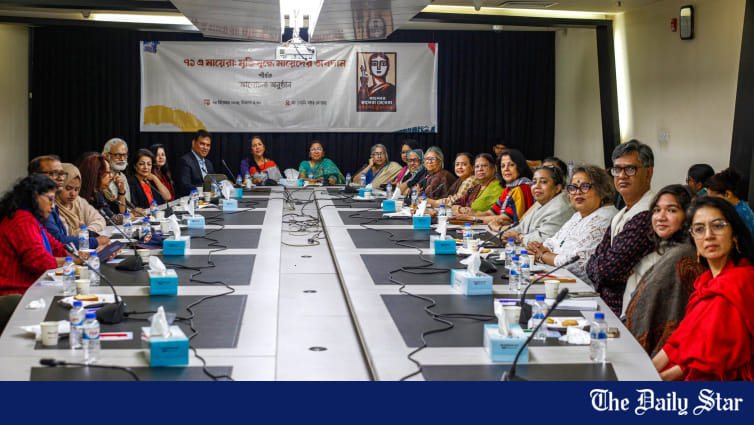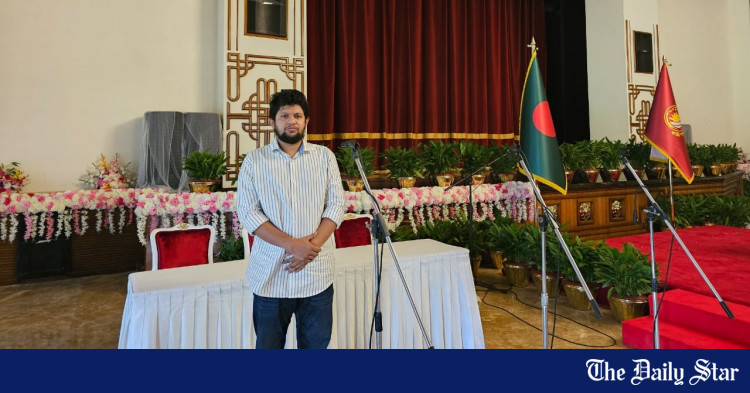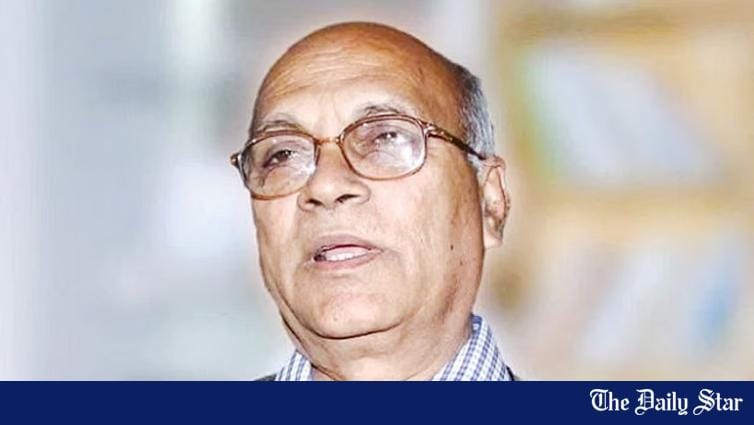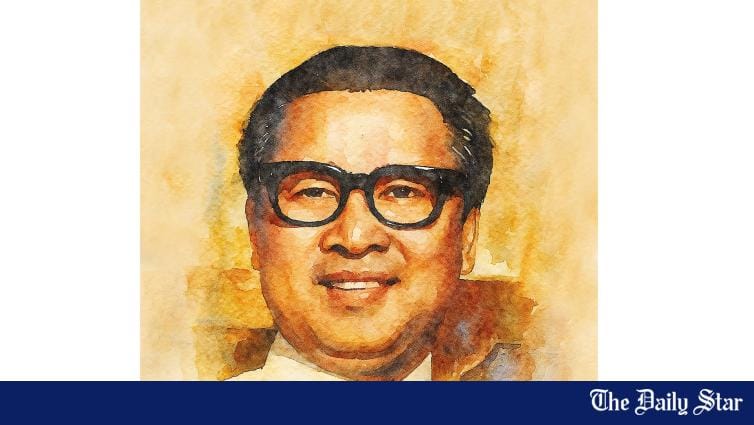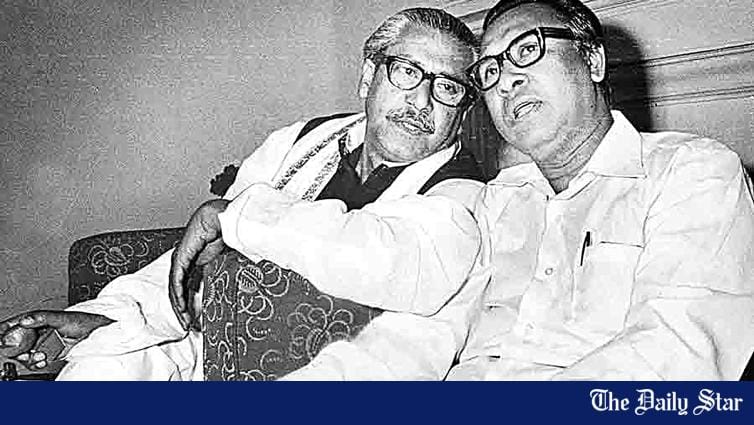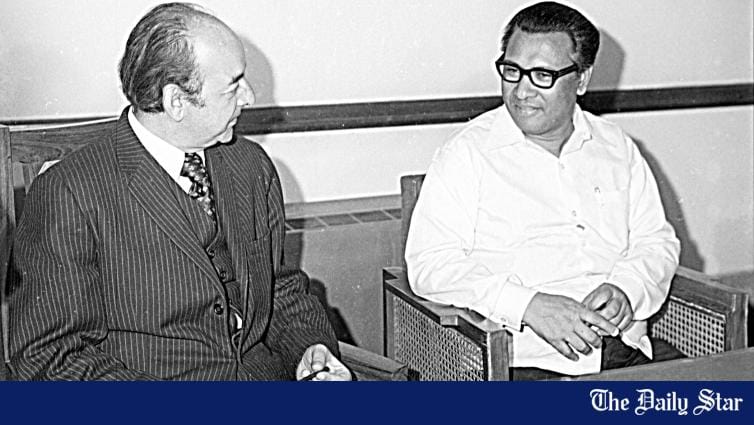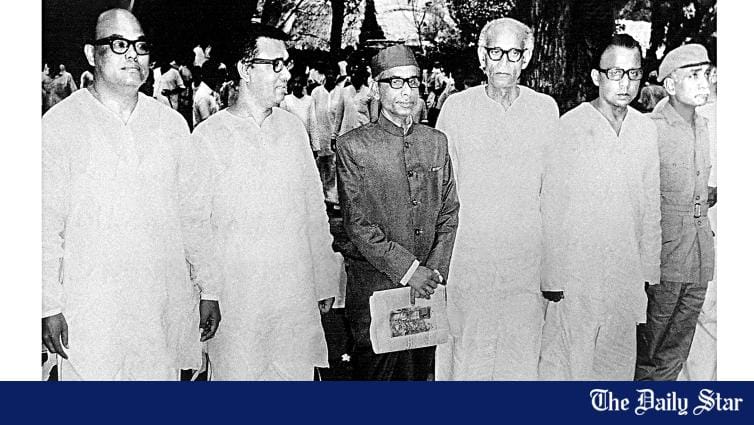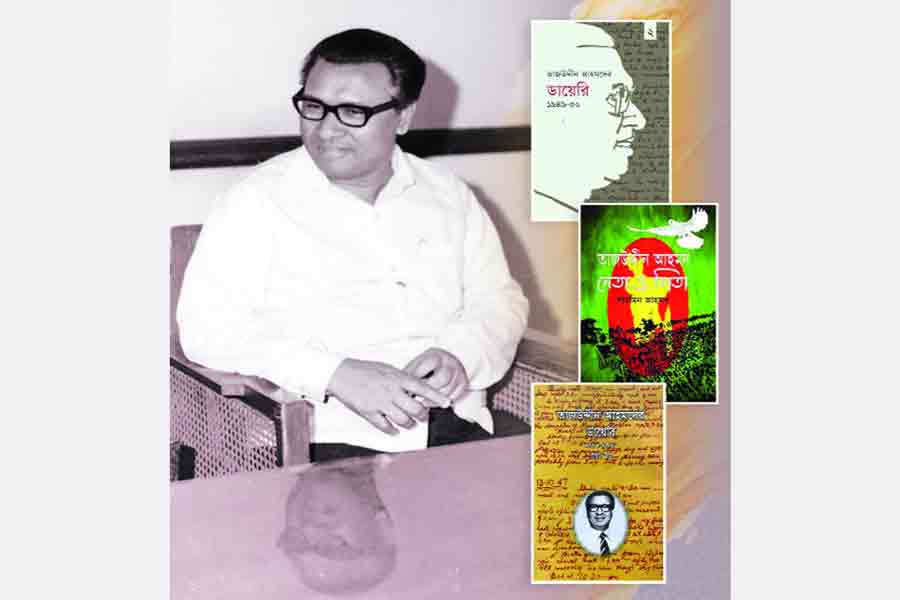- Messages
- 3,115
- Reaction score
- 1,572
- Copy to clipboard
- Moderator
- #21

Bangladesh debunks attempts to distort 1971 Liberation War history
The Bangladesh government today refuted attempts to distort the history of its 1971 Liberation War, referencing a book written by the late JN Dixit, a former Indian foreign secretary, diplomat, and National Security Adviser.en.prothomalo.com
Bangladesh debunks attempts to distort 1971 Liberation War history
BSS
Published: 18 Dec 2024, 21: 17
View attachment 11815
Bangladesh Government Logo File photo
The Bangladesh government today refuted attempts to distort the history of its 1971 Liberation War, referencing a book written by the late JN Dixit, a former Indian foreign secretary, diplomat, and National Security Adviser.
“We celebrate our glorious Victory in 1971; we celebrate the Truth,” the foreign ministry stated in a post on its verified Facebook page, citing Dixit’s observations on the events of 16 December, 1971.
The ministry’s post, titled “Facts in History”, reiterated that Bangladesh emerged as a sovereign, independent country on 16 December, 1971, following a prolonged struggle and a nine-month-long brutal war.
It quoted Dixit’s book Liberation and Beyond: Indo-Bangladesh Relations, which detailed the surrender ceremony marking the end of the war.
The ministry’s post included the following excerpt from the Dixit’s book: “A major political mistake at the surrender ceremony was the Indian military high command’s failure to ensure the presence of General M.A.G. Osmani, Commander from the Bangladesh side on the Joint Command, at the ceremony and making him a signatory. The formal excuse explaining his absence was that his helicopter did take off but could not reach Dhaka in time for the surrender schedule. But there was widespread suspicion that his helicopter had been sent astray so that he could not reach Dhaka in time and the focus of attention at the ceremony was riveted on the Indian military commanders. This was an unfortunate aberration which India could have avoided.
The event generated much resentment among Bangladeshi political circles. Osmani’s presence at the surrender ceremony could have helped in avoiding many of the political misunderstandings which affected Indo-Bangladesh relations in the initial days of Bangladesh’s independence.”
The post concluded, “We celebrate our glorious Victory in 1971; we celebrate the Truth.”
The ministry’s comments coincided with a hugely sparked public reactions to Indian Prime Minister Narendra Modi’s post on his X account (formerly Twitter) marking Bangladesh’s Victory Day. Modi’s remarks drew criticism from various political parties and prominent figures in Bangladesh.
In his Handle, Modi wrote – “Today, on Vijay Diwas, we honour the courage and sacrifices of the brave soldiers who contributed to India’s historic victory in 1971. Their selfless dedication and unwavering resolve safeguarded our nation and brought glory to us. This day is a tribute to their extraordinary valour and their unshakable spirit. Their sacrifices will forever inspire generations and remain deeply embedded in our nation’s history.
Widespread backlash
Criticism poured in from various quarters, including Communist Party of Bangladesh, Socialist Party of Bangladesh, and Bangladesh Jamaat-e-Islami and advisers of the interim government.
Law Adviser Asif Nazrul strongly protested Modi’s remarks, stating on his verified Facebook account : “I strongly protest. December 16, 1971, was Bangladesh's Victory Day. India was only an ally in this victory, nothing more than that.”
Shipping, Labour, and E-employment Adviser retired Brigadier General M. Sakhawat Hossain emphasized Bangladesh’s central role, saying, “We started our liberation war and we ended it,” as reported by New Age.
Hasnat Abdullah, convener of the Anti-Discrimination Student Movement, also criticized Modi’s comments in a Facebook post, stating: “This was Bangladesh's Liberation War. It was for Bangladesh's independence against Pakistan.
But Modi has claimed it was solely India's war and their achievement, disregarding Bangladesh's existence in their narrative. When India claims this independence as their achievement, I see it as a direct threat to Bangladesh's independence, sovereignty, and integrity. Our struggle against this threat from India is inevitable. We must continue this struggle.”
These blunders (see red highlighting above) at the head of the Indian political and military apparatus are becoming unfortunately more common by the day, and as observed, were plentiful during 1971 as well, showing the shortsightedness and narrow viewpoint of some of the Indian military commanders.
It is regrettable - but not surprising.
Notice how Hasina was protected by a full R&AW station chief in Dhaka (as an Indian asset) - and what little R&AW could do to save her. Just rank incompetence.
Ran away as fast as their legs could take them, so fast, that most of the Awami League functionaries were left to fend for themselves.



